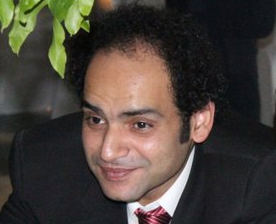By Peter Singer
MELBOURNE: Sometimes we know the best thing to do, but fail to do it. New Year’s resolutions are often like that. We make resolutions because we know that it would be better for us to lose weight, or get fit, or spend more time with our children. The problem is that a resolution is generally easier to break than it is to keep. That is why, by the end of January, most people have already abandoned their New Year’s resolutions.
John Stuart Mill, in his classic defense of liberty, argued that each individual is the best judge and guardian of his or her own interests. But recent research suggests that we can use some help.
Dean Karlan, a professor of economics at Yale University, examined ways to help some of the Philippines’ poorest people achieve their goals. He found that, like people everywhere, they had difficulties resisting the temptation to spend what little they had, even when they recognized that it would be better to save for a goal that could make a more substantial difference to their lives.
When given access to banking, they would save a little, but then withdraw it before they reached their goal. But, if offered a savings account that penalized them for withdrawing money before they reached a goal that they themselves had specified, many chose that type of account, even though the interest they earned was no higher than in an account that allowed them to make withdrawals whenever they chose. Using the account that penalized early withdrawals helped them achieve their goals.
Karlan then turned to other areas in which people lack self-control. He found that when people want to quit smoking, they are more likely to succeed if they arrange to lose money should they fail. In a randomized trial, 30 percent of those who risked a penalty for failure achieved their goal, compared to only 5 percent in the control group.
Karlan discussed his work with colleagues at Yale. How, they asked themselves, can we give people stronger incentives to keep their resolutions and achieve their personal goals? You can find their answer at a website they helped to start, www.stickK.com., where you can make a Commitment Contract, which obliges you to reach a goal of your own choosing. Then, as an incentive to fulfill your commitment, you can decide on a penalty that you must pay if you fail.
For example, one way of giving yourself a strong incentive to reach your goal is to commit to pay money to someone if you fail. Better yet, you can specify that you will have to pay a certain sum to a cause that you detest. If you support protection of the world’s rain forests, you could decide that your penalty payment will go to an organization that favors commercial development of the Amazon.
In addition, the website makes the commitment public, and allows you to have supporters who will encourage you to meet your goal, and whom you will disappoint if you fail. So far, 45,000 people have used stickK to make Commitment Contracts, with a success rate, for those who give themselves a financial incentive, above 70 percent.
Karlan’s research, and the results obtained at stickK, suggests that most people, when they are thinking calmly, have a sense of what is in their interests, but, faced with more immediate temptations, are often unable to keep to their plans. For example, the wide availability of electronic gaming machines and online gambling makes it difficult for “problem gamblers” to stop gambling, even though they know that they are losing more than they can afford to lose. As a result, many ruin themselves financially, causing great distress to their families. Some stoop to crime to pay their gambling debts. Could a commitment contract help problem gamblers to stop?
For the past two years, almost all gambling in Norway has required the use of an electronic card. Cash is forbidden. The card allows the government to impose daily and monthly limits on the amount players can lose on electronic gaming machines. This approach appears paternalistic, and perhaps it is, but it could also be defended in terms of preventing people from making their children destitute, and becoming — in a country like Norway, which provides for its poor — a burden on the state.
But the card also gives gamblers the chance to set limits for themselves. They can limit how much money they will spend, or how long they will spend at a machine at any one time. That is not paternalism, just an encouragement to pause and reflect.
The idea of offering gamblers a chance to set their own limits before they begin a gambling session is beginning to spread around the world. In addition to Norway, it exists, in various forms, in Sweden, New Zealand, and the Canadian province of Nova Scotia.
Australia’s Productivity Commission recently studied the value of such pre-commitment systems. It estimated the annual social cost of problem gambling in Australia at $4.7 billion, and recommended that voluntary pre-commitment systems be phased in for electronic gaming machines. The government, under pressure from an independent member of parliament on whose support it relies, has now promised to implement the Commission’s main recommendations.
Human decision-making is complex. On our own, our tendency to yield to short-term temptations, and even to addictions, may be too strong for our rational, long-term planning. But when the temptations are not immediately present, we can erect barriers to them that make us less likely to succumb when they return. Knowing that we can control our own behavior makes it more likely that we will.
Peter Singer is Professor of Bioethics at Princeton University and a Laureate Professor at the University of Melbourne. His most recent book is The Life You Can Save. This commentary is published by Daily News Egypt in collaboration with Project Syndicate, www.project-syndicate.org.


